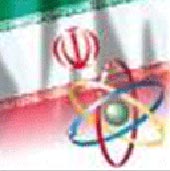
Iran’s Nuclear Issues and Political Dynamics of Iranian Society ...2
The debate over Iran’s nuclear program and its ambitions has occupied the headlines for quite a while. Media reporting its developments by a vigor becoming of football fans watching their team making yard by yard in the field. On one side there is a government seeking its clash with the world in order to prove its black and white image of world and to gain credibility, on the other side there are governments with nuclear arsenal of their own and armies on both sides of Iran, determined not to let her acquire the ability to become a nuclear power. After September 11, 2001 it is not hard to understand the motives of western countries, although had it not had happened one still would have doubted it very much that these governments would agree to a nuclear Iran. 911 provides the context and the mass media tool to gain public support for a firm stand and its potentially dramatic consequences and not the motives.
Like any other event of international significance Iran’s nuclear ambitions have not become important for what they are, but for what they represent. They represent a country, a political regime who wants to gain international credibility by becoming a significant international player not by obliging the big boys of this global club but by acquiring means to be powerful. As a nation Iranians are still seeking to establish their position as a regional power.
The political regimes of Iran have followed the same goal independent from their nature. Pahlavi did this by becoming the most important American ally in the region, establishing an army second to none of his neighbors; Islamic Republic is pursuing the same goal by reviving its influence among the Shi’a circles and establishing a nuclear infrastructure. Both regimes consider joining the nuclear club the most important step toward achieving their regional might. For them the idea of power is a physical one, not a commercial one. To be respected for both means to be feared not to be needed. Thus one is surprised how little both regimes try to establish Iran as an industrial country or an economic power. The idea of being told what to do by the powers because they have the power to prevent Iran from becoming powerful is appealing neither to Iranians nor to their political regimes. The only place Iranians are big in compromise is Bazaar and not diplomacy and not the matters of honor.
This has put current Iranian administration in a corner. In President Khatami’s days conservatives used the nuclear issue to portray an unpatriotically compromising picture of his administration. Now in President Ahmadi Neghad’s administration they have made it their first priority. Conservatives continue to be morally right factions who are defending Iran, the holiest of all for Iranians, and her rights righteously. It also would put liberals and reformers on defensive, because they can not criticize the government policies openly fearing the public would consider them disloyal to Iran as collaborators. This would doom the chances of any democratic change in Iran and guarantee the hardliners dominance. And if they can get through the current situation, they will consider themselves national heroes; a role they are not so gracious at and would give them the instruments to eliminate their opponents, rivals and critiques.
Fifty odd years ago Pahlavi gained his international credibility and secured its internal role as the dictator of Iran by going through nationalizing Iran‘s oil industry and crossing Dr. Mossadegh, the popular architect of the movement. Today on a similarly nationalistic platform Islamic Republic is fighting for the same thing: international credibility and unchallenged control of Iran. Question is if it can pull it off. In next note I share with you my thoughts on this topic.
No comments:
Post a Comment